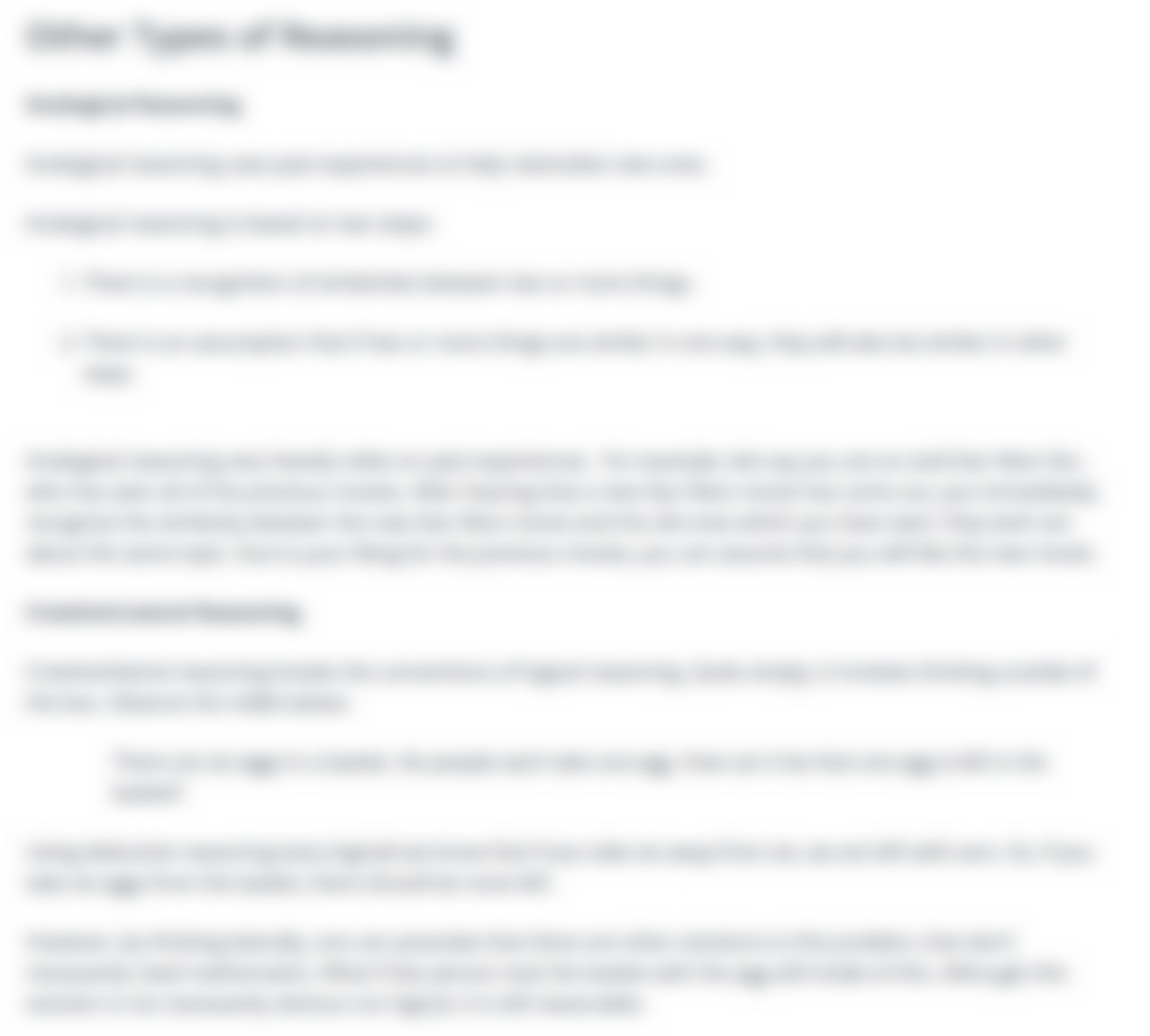Reason Notes - Theory of Knowledge
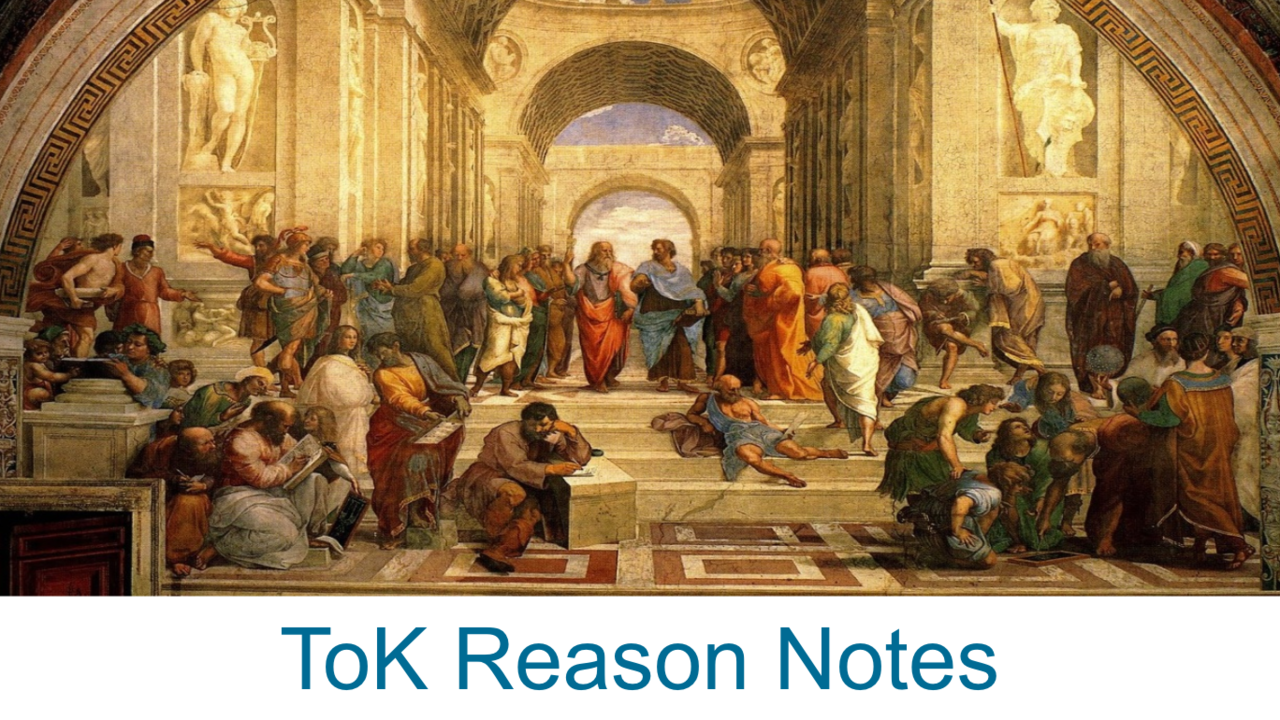
Reason Quotes
- "It has been said that man is a rational animal. All my life I have been searching for evidence which could support this." (Bertrand Russell)
- "I do not feel obliged to believe that the same God who has endowed us with sense, reason, and intellect has intended us to forgo their use." (Galileo Galilei)
- "He that will not reason is a bigot; he that cannot reason is a fool; and he that dares not reason is a slave." (William Drummond)
- "Critical reason is the only alternative to violence so far discovered." (Karl Popper)
- "Reason itself is a matter of faith. It is an act of faith to assert that our thoughts have any relation to reality at all." (G K Chesterton)
- 'You do not reason a man out of something he was not reasoned into." (Jonathan Swift)
Definitions of Reasoning
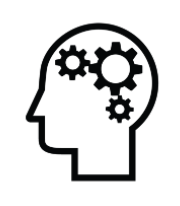 Reasoning is the process of thinking about something in a logical way in order to form a conclusion or judgement. (Merriam-Webster Online)
Reasoning is the process of thinking about something in a logical way in order to form a conclusion or judgement. (Merriam-Webster Online)- The process of forming conclusions, judgements or inferences from facts or premises. (Dictionary.com)
- The act or process of drawing conclusions from facts, evidence, etc. (The Free Dictionary)
Deductive vs. Inductive Reasoning
Deductive Reasoning (‘Top Down’)
Deductive reasoning is a logical process in which a conclusion is based on the concordance of multiple premises that are generally assumed to be true. The eventual knowledge produced depends on which axioms or facts the thinker accepts.
When one reasons deductively, they start with a theory, or general principles and form a conclusion for a specific instance. For example, “all seals are cute; Franco is a seal; therefore Franco is cute”. In many cases, deductive reasoning is also an example of syllogistic reasoning (referred to later).
Deductive reasoning is often very accurate, as long as the initial generalization/theory is true.
Inductive Reasoning
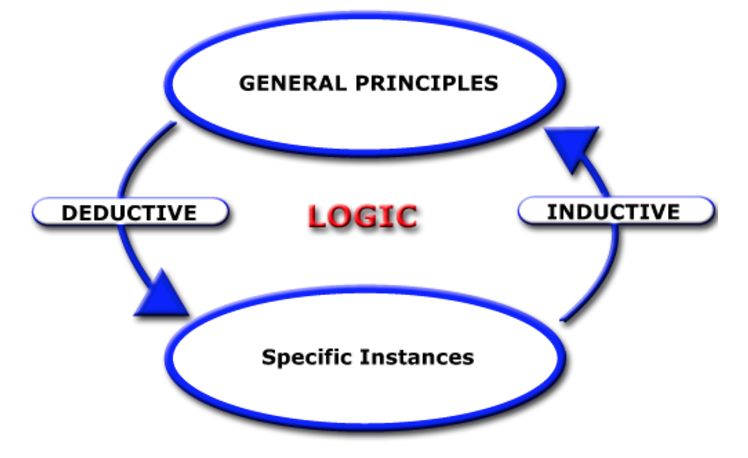 Inductive reasoning is a logical process in which multiple premises, all believed true or found true most of the time, are combined to obtain a specific conclusion.
Inductive reasoning is a logical process in which multiple premises, all believed true or found true most of the time, are combined to obtain a specific conclusion.
When one reasons inductively, they start with a specific instance, and conclude on a general principle or theory. For example: “Jason has worn black socks to school everyday for the past year; Jason wears black socks everyday and he will wear them today."
Inductive reasoning is not always accurate, because it usually involves generalization. However, generalizations are often necessary.
In the case of language, generalizations are needed so that we don’t treat each experience/object as unique one, and are able to generalize multiple experiences/objects into simple words.
Language and Reason
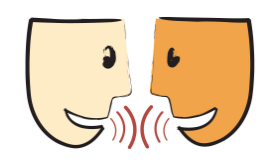 The language that we use is often based on generalizations. At a young age, children will generalize specific objects and feelings into language. For example, a child might see a vehicle and say the word “car”. If the child has generalized correctly, parents will confirm to the child that he or she is correct. If the child has generalized incorrectly, than the parents will correct the child, perhaps saying “No, that’s a truck.”
The language that we use is often based on generalizations. At a young age, children will generalize specific objects and feelings into language. For example, a child might see a vehicle and say the word “car”. If the child has generalized correctly, parents will confirm to the child that he or she is correct. If the child has generalized incorrectly, than the parents will correct the child, perhaps saying “No, that’s a truck.”
It is in this way that language is related to reason. It can be argued that language is used to generalize our experiences as individuals. This way, we don’t treat each experience as unique, and are able to generalize multiple experiences into simple words.
Truth vs. Validity
A very important concept related to reasoning is the difference between truth and validity.
An argument that is valid is only concerned about pure logic. In other words, does the argument make sense in terms of pure logic.
For example:
“Lions eat zebras; a lion ate Dylan; therefore Dylan is a zebra”
Using syllogistic reasoning, this argument makes sense. It is logical. If A eats B, and A eats C, then B is C.
However, this statement, although valid is not necessarily true. Using deductive reasoning, one knows that no human can be a zebra.
This relationship between what is true and what is valid is often explored when discussing reasoning. It is often due to an individual's past experiences that they can rationalize what is true and what is valid.
Here is a great quote on truth vs reason from A.C. Grayling:
"Logic as a science is not the science of truth, but of reasoning; in addition to reason, you need facts; getting the latter, and getting them straight, is a matter of care, common sense, discipline, hard work, and scrupulous enquiry. All these things are beyond the attention span of most, which is why there is so much folly in the world. This is because most reasoning - such as it is - operates not on facts but prejudices and superstitions, and thus it is that people go to war with one another, and spit in each other's eyes." (A.C. Grayling)

